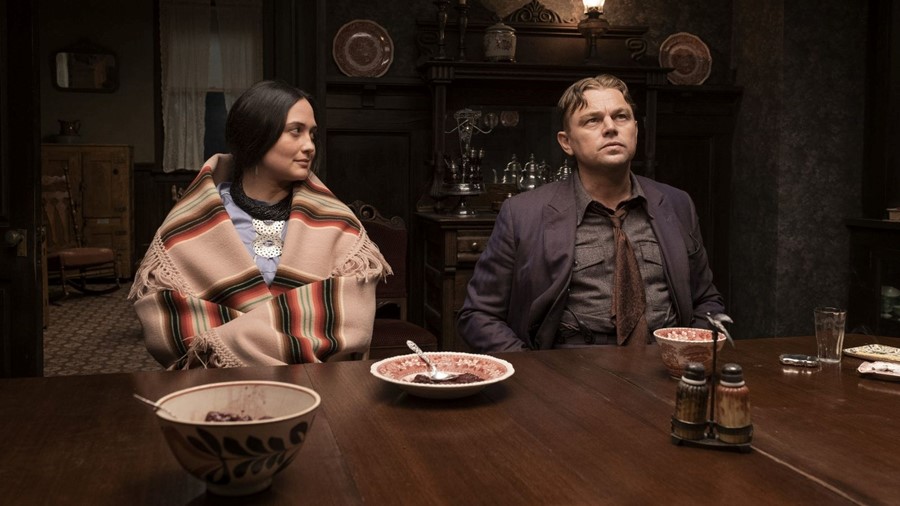From Martin Scorsese’s new three-and-a-half-hour epic to David Fincher’s hitman thriller starring Michael Fassbender, here are the films to add to your watchlist this month
Killers of the Flower Moon
Adapted from David Grann’s book of the same name, Killers of the Flower Moon arrives as one of the most hyped films of Martin Scorsese’s long and storied career. Five years and $200m in the making, it’s an American origin story as bathed in blood as his iconic mob epics – and also, it turns out, a fascinating case study in how films get made in an era fraught with worry about representation.
Grann’s bestseller tells the story of the Osage nation of Native Americans, forced by the US government on to a reservation which was later discovered to be sitting on vast quantities of oil. By the 1920s they had become the richest people on the planet, so the authorities cooked up a plan to assign white guardians to manage their financial affairs, which they were deemed ‘incompetent’ to look after. Of course, this gave carte blanche for swindlers to misappropriate their money and much, much worse besides, as Osage people start dying in all manner of suspicious circumstances.
Fearing for their lives, the tribe’s representatives go to Washington DC to petition the president, and a member of the newly formed FBI, Detective Tom White, is dispatched to Oklahoma to unmask the killers. Initially, White (Jesse Plemons) was to take more of a central role in Scorsese’s film, the book effectively combining two stories into one: the web of conspiracy surrounding the Osage killings, and the birth of the FBI. But, mindful of the need to avoid another ‘white saviour’ narrative in adapting the text, he opted to shift focus to one of the perpetrators, Ernest Burkhart, and his Osage wife Mollie. That’s understandable, but it has consequences I would argue are to the film’s detriment.
Ernest, played with a perma-scowl of concentration by Leonardo DiCaprio, is a venal, none-too-bright character controlled by his uncle, cattle rancher and self-styled pillar of the community William Hale (Robert De Niro). His good looks allow him to charm Mollie (a graceful and quick-witted performance from Lily Gladstone), portrayed here as perhaps wiser than the story can credibly allow: why, I kept wondering, would this woman fall for Ernest, despite having him pegged as a ‘coyote’ from the beginning? As for Ernest, he maintains his love for his wife in spite of an avalanche of evidence to the contrary. In giving their relationship the contours of a tragic love story, the film risks ennobling a figure the book presents as no more than a petty hoodlum and murderer.
None of that is to deny the film’s strengths. With his long-term editor Thelma Schoonmaker, Scorsese sustains a mood of tightly coiled suspense here that he’s not mustered since Casino – no mean feat, for a film some three and a half hours in length. He adds a meta layer to the action by unfolding part of his story through silent-era newsreels and hokey television plays, acknowledging the screen’s complicity in shaping popular attitudes to Native Americans throughout the 20th century. And if the film shares the same fascination with the basic lawlessness of American capitalist endeavour as Goodfellas or The Wolf of Wall Street, say, he’s more focused here on the victims than in much of his past work. Their plight is movingly addressed in a scene with one of the Osage chiefs, now a practising Catholic like the rest of the community – and Scorsese himself. “We never prayed for the great life,” he says, reflecting on their lot. “We just prayed for life.”
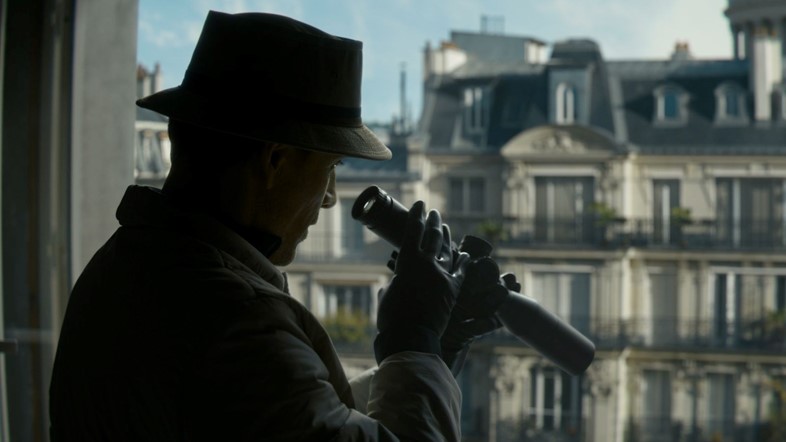
The Killer
Is David Fincher’s heart really in The Killer? We could ask the same question of its main character, an assassin (Michael Fassbender) who listens to The Smiths on the job and quotes Popeye and Aleister Crowley in explaining the, er, philosophy of his craft. What makes him different from a million other existentially inclined killers of Hollywood lore? Well, he’s a “cog in the machine”, as he puts it, just another sucker in the gig economy whose job security goes up in smoke when he winds up marked for death when a hit goes wrong. To illustrate the point, Fincher has him working out of a Wework office at one point, while Airbnb and Amazon Prime also make pointed cameos in the film. (He might as well have named Netflix, who bankrolled this venture, while he was at it.) As for the rest, it’s brisk and business-like, with a couple of standout set pieces and some casually beautiful photography courtesy of Erik Messerschmidt, the director’s cinematographer on Mank. But really, Fincher can do this stuff in his sleep: file this one under ‘for the money’, perhaps.
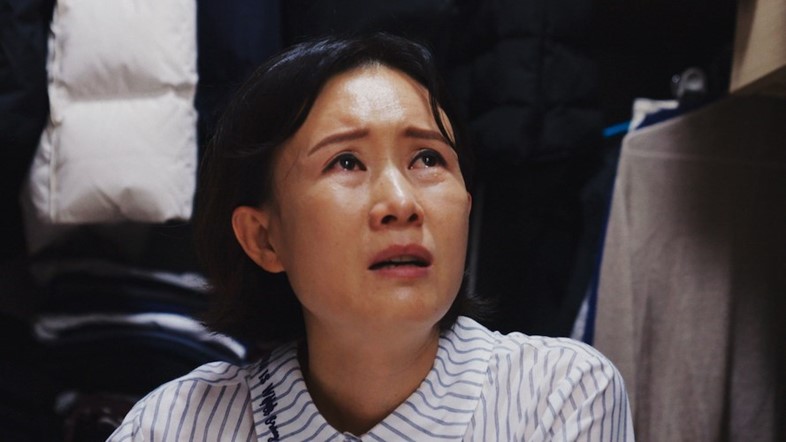
Beyond Utopia
Highlighting the plight of North Koreans looking to escape via the Chinese border, Madeleine Gavin’s Beyond Utopia is a journalistic triumph and one of the year’s most gripping films. Telling her story through the heroic figure of Sengeun Kim, a pastor on the Underground Railroad helping North Koreans to defect, Gavin secures heartstopping footage of one family’s perilous, 3,000-mile trek to freedom through mountainous border regions and the jungles of Vietnam, where a single misstep or stray torch light could spell disaster. Meanwhile in South Korea, a mum who defected anxiously awaits news of her teenage son, also attempting the crossing to see her. It’s a moving and often unbearably tense account of the lengths people go to to escape a country whose human rights record the UN has compared to Nazi Germany’s.
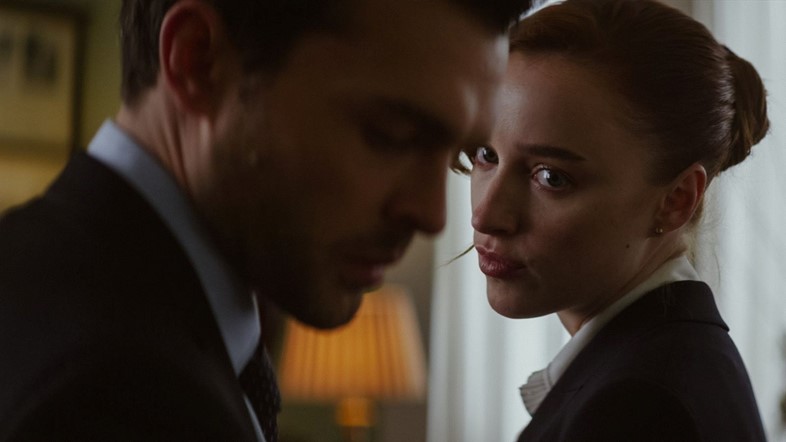
Fair Play
Fair Play is that rarest of beasts: a button-pushing Netflix thriller with real satirical bite. Craftily written and directed by Chloe Domont, it’s the story of ambitious hedge-fund analyst Emily (Phoebe Dynevor) and her fiancé, Luke (Alden Ehrenreich), who is passed over for promotion when Emily gets the job. Luke is not-so secretly incensed at the snub, and before you know it he’s up to his eyeballs in dodgy self-help videos by an Andrew Tate-like guru, sweet-talking his betrothed into a little light insider-trading to try and further his stalling career. Domont’s firecracker script takes hot-button issues around sex and power in the workplace and wraps them up into a pleasingly tart, slickly entertaining package – a shame, then, that it’s let down somewhat by a scene involving sexual assault near the end, which poorly serves one of the main characters. Ditto Netflix’s description of the film as an ‘erotic thriller’, which seems an odd way to market a story featuring the above.
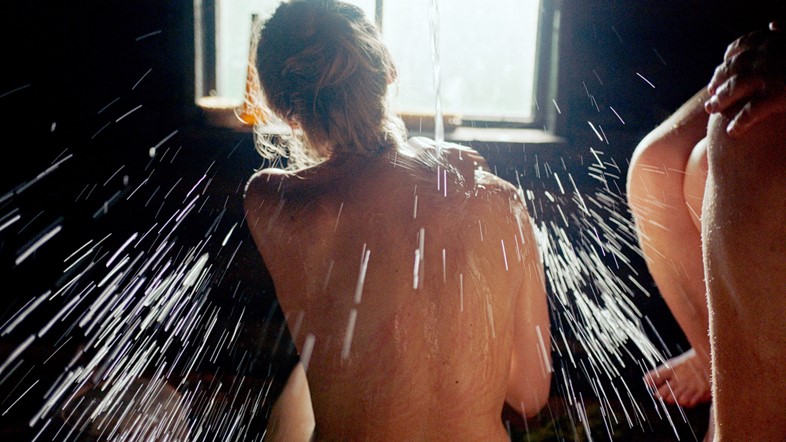
Smoke Sauna Sisterhood
Anna Hints’ documentary debut turns on a simple premise: a group of women gather at a smoke sauna in the Estonian countryside, indulging in a series of traditional rites including massages, ice baths and gently administered silver birch-thrashings. But the conversations that ensue are extraordinary, as the women let their guards down to share stories – some funny, some devastating – of unwanted dick pics, the pressures of living up to gender expectations and deep-seated sexual trauma. It’s quietly spellbinding stuff, Hints directing her cast through the smoke as a kind of modern-day coven, turning a time-honoured cleansing ritual into a space for spiritual healing.
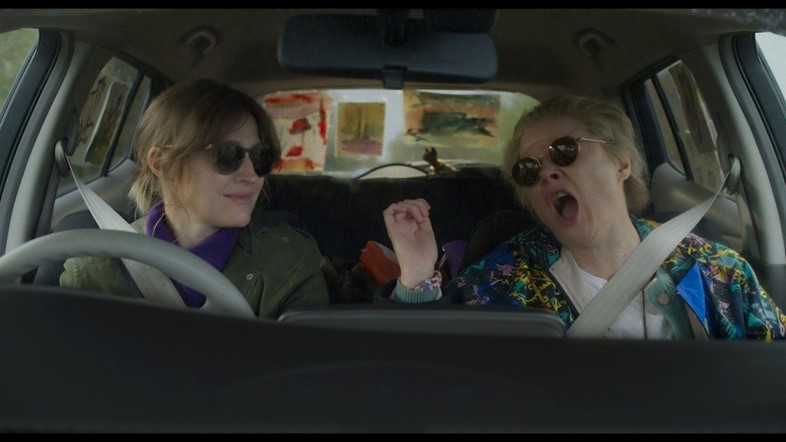
Typist Artist Pirate King
Audrey Amiss was an artist who trained at the Royal Academy before being forced to abandon her studies due to her mental health. Developing a style she described as “avant-garde and misunderstood”, she composed thousands of sketches, paintings and mixed-media works documenting a life lived in and out of care. (She was diagnosed with paranoid schizophrenia and bipolar disorder, among other things.) For her fourth feature, director Carol Morley trawled through the artist’s archives at London’s Wellcome Trust to cook up a fictional narrative about Amiss and her carer, Sandra (Kelly Macdonald), who go on a road trip to her native Sunderland to reconnect with the past. Morley’s film is part shaggy-dog tale, part odd-couple comedy with a little of Harold and Maude’s anarchic spirit – there’s a great scene where Audrey, lost in a field, wanders into a historical battle re-enactment – but in spite of a finely calibrated turn from Dolan it hits all too many predictable beats, a disappointing result for a life lived so unpredictably.
